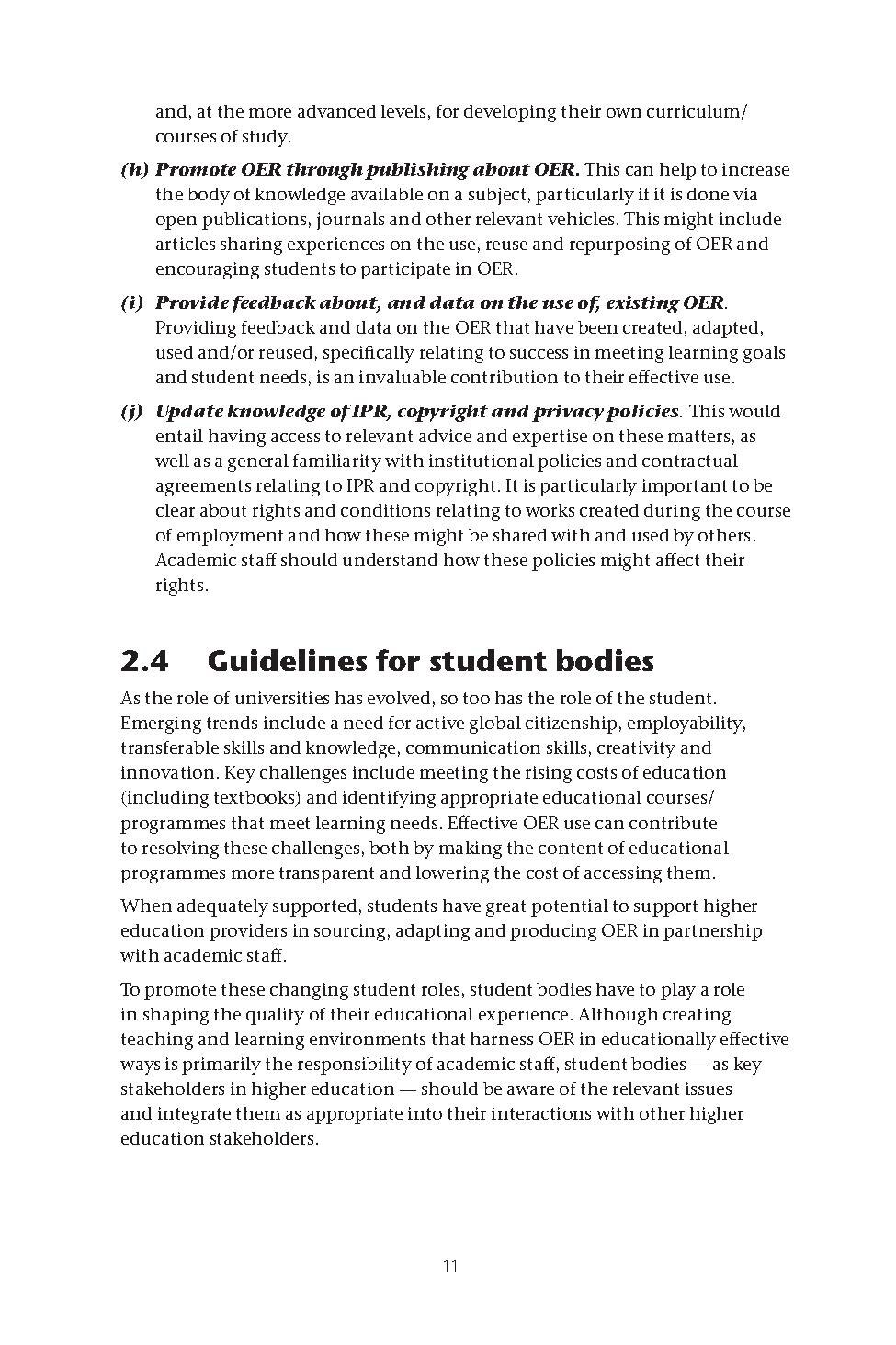- and, at the more advanced levels, for developing their own curriculum/courses of study.
- Promote OER through publishing about OER. This can help to increase the body of knowledge available on a subject, particularly if it is done via open publications, journals and other relevant vehicles. This might include articles sharing experiences on the use, reuse and repurposing of OER and encouraging students to participate in OER.
- Provide feedback about, and data on the use of, existing OER. Providing feedback and data on the OER that have been created, adapted, used and/or reused, specifically relating to success in meeting learning goals and student needs, is an invaluable contribution to their effective use.
- Update knowledge of IPR, copyright and privacy policies. This would entail having access to relevant advice and expertise on these matters, as well as a general familiarity with institutional policies and contractual agreements relating to IPR and copyright. It is particularly important to be clear about rights and conditions relating to works created during the course of employment and how these might be shared with and used by others. Academic staff should understand how these policies might affect their rights.
2.4 Guidelines for student bodies
As the role of universities has evolved, so too has the role of the student. Emerging trends include a need for active global citizenship, employability, transferable skills and knowledge, communication skills, creativity and innovation. Key challenges include meeting the rising costs of education (including textbooks) and identifying appropriate educational courses/programmes that meet learning needs. Effective OER use can contribute to resolving these challenges, both by making the content of educational programmes more transparent and lowering the cost of accessing them.
When adequately supported, students have great potential to support higher education providers in sourcing, adapting and producing OER in partnership with academic staff.
To promote these changing student roles, student bodies have to play a role in shaping the quality of their educational experience. Although creating teaching and learning environments that harness OER in educationally effective ways is primarily the responsibility of academic staff, student bodies—as key stakeholders in higher education—should be aware of the relevant issues and integrate them as appropriate into their interactions with other higher education stakeholders.
11
